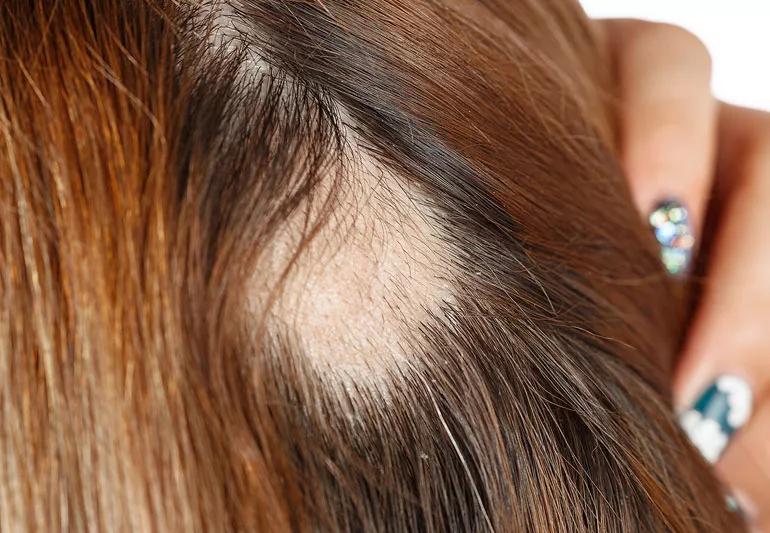Chronic hair pulling is a behavior that requires professional help

For some, “pulling my hair out” isn’t just an expression — it’s a legit concern. Compulsive hair pulling is a type of body-focused repetitive behavior (BFRB) that affects 1 to 2% of Americans, mostly women. The uncontrollable urge to pull hair can result in bald spots on the scalp, eyebrows and lashes.
Advertisement
Cleveland Clinic is a non-profit academic medical center. Advertising on our site helps support our mission. We do not endorse non-Cleveland Clinic products or services. Policy
Experts don’t know what causes the intense desire to pull hair, but there may be a genetic link. Thankfully, recovery is possible. Preventive medicine physician and wellness expert Sandra Darling, DO, offers some insight.
A: People who compulsively pull their hair often feel shame and embarrassment yet continue pulling anyway because the behavior:
People with a hair-pulling disorder (also known as trichotillomania) may have triggers, like boredom or fatigue. Emotional triggers include feeling anxious, stressed or overwhelmed.
A: People who chronically pull their hair become very good at hiding the behavior if they feel weird or abnormal about it. They may feel like they’re the only person who has this urge, which could lead them to experience emotions such as:
In some cases, the impact of hair pulling goes beyond cosmetic and psychological damage. Some people eat their pulled hairs. The hair can get matted in the digestive tract and create a hairball, which can be life-threatening if it causes a blockage. Surgery may be necessary to remove it.
Advertisement
A: Some people can completely stop hair pulling behavior. For others, trichotillomania is a lifelong disorder that ebbs and flows with life’s events and stressors. Well-meaning friends and family members should avoid telling their loved ones to stop pulling — trichotillomania is a disorder that requires professional help.
If you're caught up in pulling, you can learn to control the urge through a combination of treatments, such as:
A: To hide the condition, many people use hair extensions called crown toppers. They may also use false eyelashes or eyebrow pencils to disguise areas of hair loss. Hats and headscarves are typical as well.
But while you may want to hide the effects, don’t hide the disorder. Be open and honest. Confide in a friend or loved one so you can start on the path to recovery. And you can find inspiration from those who have publicized their struggles with hair pulling, like Megan Fox and JessiKate Riley (Miss Utah 2017).
Advertisement
Learn more about our editorial process.
Advertisement

The convenient option is good for touch-ups, but it shouldn’t replace your traditional sunscreen

At-home options aren’t your best bet — instead, consider noninvasive laser treatments with a dermatologist

An enzyme deficiency or rosacea are potential causes of alcohol flush

Home remedies are unlikely to cure your contagious foot fungus — and they might even make it worse

Earlobe piercings heal quicker and are less painful than cartilage piercings — proper cleaning and care are important

Your immune system may attack hair follicles anywhere on your body

Some treatments may temporarily reduce the appearance of puckered and dimpled skin

Look for a UPF rating of 50+ for optimal protection against UV rays

If you’re feeling short of breath, sleep can be tough — propping yourself up or sleeping on your side may help

If you fear the unknown or find yourself needing reassurance often, you may identify with this attachment style

If you’re looking to boost your gut health, it’s better to get fiber from whole foods